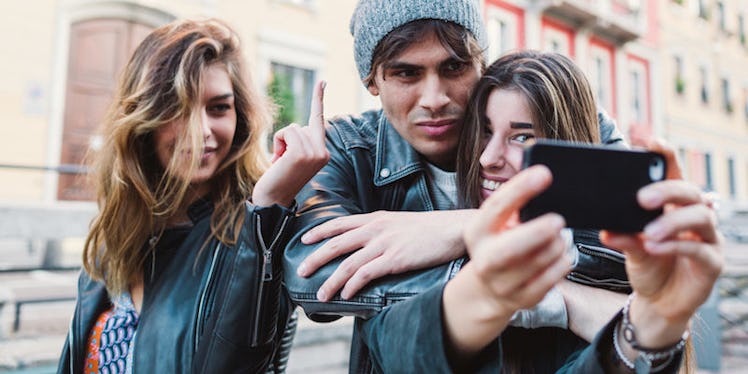
This Theory Proves Social Media Really Is Bad For Your Mental Health
Thanks to the research of associate professor Johan Bollen, now we know why we're so miserable all the time. With the help of his buds at Indiana University, Bollen found evidence to support the happiness paradox, a theory that suggests all our friends are happier than we are.
The happiness paradox works out like this: You see that all your friends have more friends than you on social media and you feel less popular, leading you to feel pretty down about yourself. Does that sound familiar? If so, you're like millions of others who've experienced unhappiness as a result of social media's pervasiveness.
Until Bollen's work, the evidence to support the happiness paradox wasn't that great. He and his researchers say they've now found a verifiable correlation between social media and a person's diminished wellbeing. Because of the weird ways we acquire "friends" on Facebook and Twitter, our perception of who's well-connected becomes skewed. This results in a friendship paradox, which, according to Technology Review, works out like this:
Imagine you have 10 friends and that nine of them also all have 10 friends each. But one of your friends has a million friends. In that case, your friends have close to 100,000 friends each on average while you have only 10. And all your friends are in the same position, except the one who has a million friends.
So, if it's mathematically possible for all your friends to have more friends than you, then the same theory could work for happiness. That's if we're assuming popularity correlates with happiness -- and if you're asking Cher from "Clueless," it, like, totally does.
To find their evidence for the happiness paradox, Bollen and his team looked at 3,000 recent tweets sent by 40,000 Twitter users. Using a basic algorithm, they determined the sentiment of each tweet to be either positive or negative, reflecting the emotional state of the user. The team worked on the assumption that a happy person generally tweets with positive vibes and a mope tweets like a negative Nancy. They also included the number of followers for each individual to get a full picture.
What they found suggests that the more depressed you are, the more intensely you experience the happiness paradox. Bollen and his team of researchers say,
Although happy and unhappy groups of subjects are both affected by a significant happiness paradox, unhappy subjects are most strongly affected.
So there you have it. Your friends are happier than you are. Only, are they really? Bollen says the happiness paradox could come from an unlikely place, writing,
Instead of resulting from the greater prevalence of popular and happy individuals, it could come about by the social interactions between people. In other words, unhappiness is more infectious than happiness for certain individuals.
All the more reason to tweet some positivity into the world. Just do me a favor and don't be obnoxious with posts about your latest trip to Belize. Dismantling the unhappiness paradox starts with not being a douche.
Citations: First Evidence for the Happiness Paradox—That Your Friends Are Happier than You Are (Technology Review)